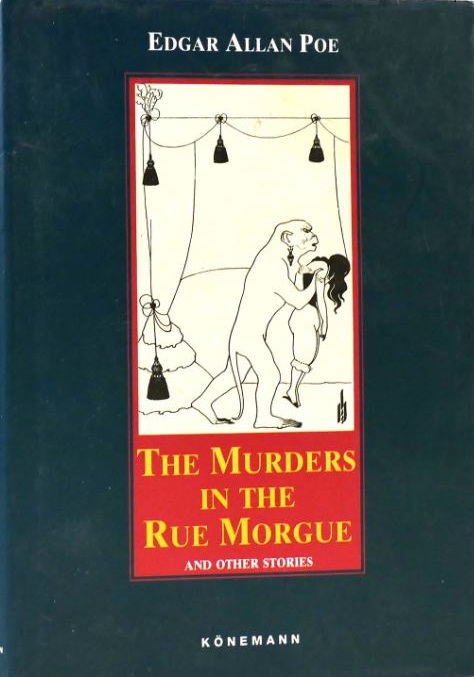Summary | Excerpt | Reviews | Beyond the book | Read-Alikes | Genres & Themes | Author Bio

A Novel
by Jane SmileyFrom the beloved Pulitzer Prize-winning and best-selling author of A Thousand Acres: a rollicking murder mystery set in Gold Rush California, as two young prostitutes follow a trail of missing girls.
Monterey, 1851. Ever since her husband was killed in a bar fight, Eliza Ripple has been working in a brothel. It seems like a better life, at least at first. The madam, Mrs. Parks, is kind, the men are (relatively) well behaved, and Eliza has attained what few women have: financial security. But when the dead bodies of young women start appearing outside of town, a darkness descends that she can't resist confronting. Side by side with her friend Jean, and inspired by her reading, especially by Edgar Allan Poe's detective Dupin, Eliza pieces together an array of clues to try to catch the killer, all the while juggling clients who begin to seem more and more suspicious.
Eliza and Jean are determined not just to survive, but to find their way in a lawless town on the fringes of the Wild West—a bewitching combination of beauty and danger—as what will become the Civil War looms on the horizon. As Mrs. Parks says, "Everyone knows that this is a dangerous business, but between you and me, being a woman is a dangerous business, and don't let anyone tell you otherwise ..."
• 1 •
Two months after her husband died on November 12, 1851, Eliza Ripple stopped writing letters to her mother back in Kalamazoo. The reason was both simple and complex. Her mother had written her three letters, all of them lamenting and lamenting and lamenting Peter's demise, but, apart from the shock (which was perfectly understandable, given that he was shot in a bar fight in Monterey), Eliza was more relieved than upset. They had been married for a little over two years—she was eighteen when her father handed her over to Peter, who was thirty-eight. Eliza had hardly known Peter at the time, as he was new to Kalamazoo, visiting a cousin he had there. He had presented himself as prosperous and well mannered, an experienced traveler with connections and funds. Eliza had offended both of her parents by becoming fond of a boy her age, from Ireland (County Cork), who worked in a lumber mill, though not the one her father owned, was tall and ...
While Eliza's relative naivete allows the book to take on an educational tone concerning social and political issues, much of the ensuing commentary doesn't quite land. Discussions of slavery appear with an air of importance but remain surface-level. A Dangerous Business succeeds best in its quiet focus on the nuances of Eliza's psyche and her growth as a person, which include natural revelations about how the concepts of guilt and innocence are not so clear-cut within an unequal society. When the truth of the murder case is finally revealed, it comes across as fairly anticlimactic, and this is partly because of her mounting understanding of the broader culture of male violence — that "everyone who could have done it…might have done it."..continued
Full Review
 (730 words)
(730 words)
(Reviewed by Elisabeth Cook).
 Roxane Gay
The forthcoming Jane Smiley novel, A Dangerous Business, is so outstanding. Her sentences are sublime.
Roxane Gay
The forthcoming Jane Smiley novel, A Dangerous Business, is so outstanding. Her sentences are sublime. In Jane Smiley's A Dangerous Business, the story "The Murders in the Rue Morgue" by Edgar Allan Poe becomes an important point of reference for main character Eliza as she and her friend Jean investigate a series of murders in 1850s Monterey, California. As Eliza examines the facts and circumstances surrounding the killings, her thoughts frequently return to Poe's amateur detective C. Auguste Dupin (charmingly rendered "DuPANN" in the narration, as Eliza strives to remember the French pronunciation) and his approach to examining relevant details.
In Jane Smiley's A Dangerous Business, the story "The Murders in the Rue Morgue" by Edgar Allan Poe becomes an important point of reference for main character Eliza as she and her friend Jean investigate a series of murders in 1850s Monterey, California. As Eliza examines the facts and circumstances surrounding the killings, her thoughts frequently return to Poe's amateur detective C. Auguste Dupin (charmingly rendered "DuPANN" in the narration, as Eliza strives to remember the French pronunciation) and his approach to examining relevant details.
Published in Graham's Magazine in 1841, "The Murders in the Rue Morgue" is widely regarded as a foundational work of crime fiction. It is often considered the first modern detective story, ...

If you liked A Dangerous Business, try these:

by Susanna Moore
Published 2024
From one of our most compelling and sensual writers comes a searing, immersive novel about a seminal and shameful moment in America's conquest of the West. Drawing partly from a true story, it brings to life a devastating Native American revolt and the woman caught in the middle of the conflict.

by Amy Chua
Published 2024
Amy Chua's debut novel, The Golden Gate, is a sweeping, evocative, and compelling historical thriller that paints a vibrant portrait of a California buffeted by the turbulent crosswinds of a world at war and a society about to undergo massive change.




More Anagrams
Click Here to find out who said this, as well as discovering other famous literary quotes!